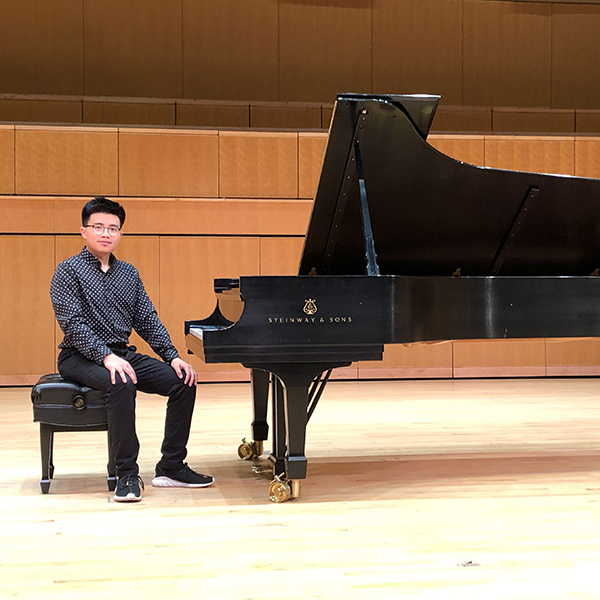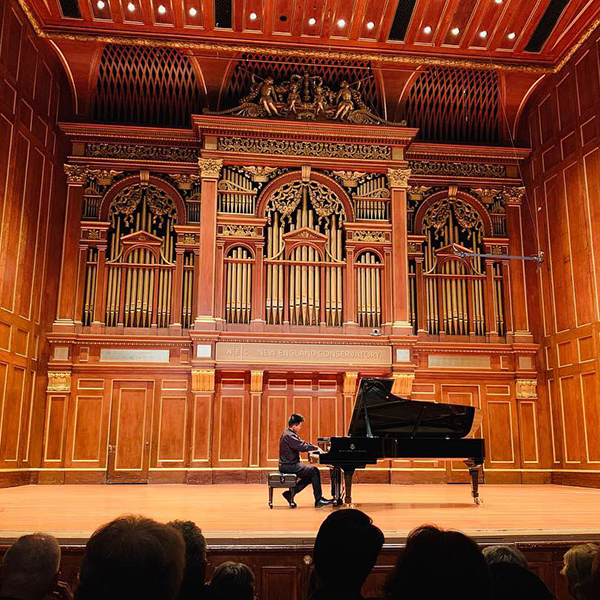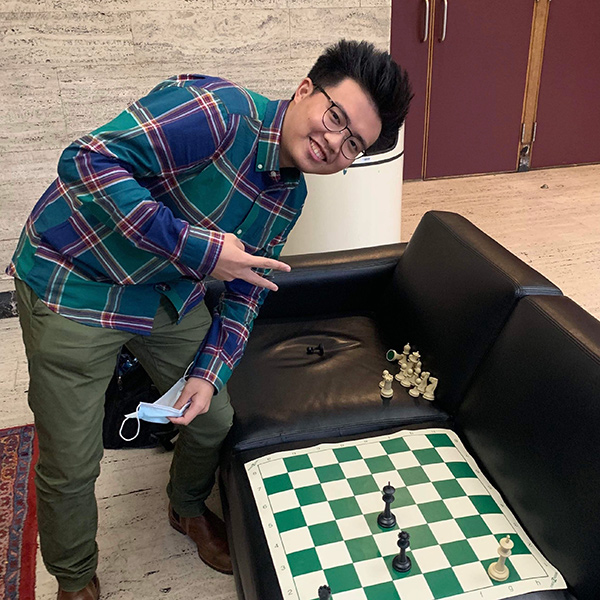




About Jiawen (Eric)
EDUCATION
Master of Music, New England Conservatory (in progress); BM, New England Conservatory
Instruments
Piano, Keyboards
Born in China, Jiawen (Eric) Guan is currently a piano student and improviser at the New England Conservatory in Boston, where he studies with Prof. Hae Sun Paik. Jiawen has participated in several music festivals, concerts, and competitions. He was the winner of the 2014 Peabody Winter Honors Concert, the 2014 Peabody Concerto competition, the 2018 New England Conservatory Honors recital and the 2019 Atlantic Music Festival Piano competition, Silver prize winner of the April 2021 Musicale Romantic Style Music Festival competition in the 18-26 age category, and is the recipient of the Dean’s Scholarship at New England Conservatory. He has previously studied with Prof. Victor Rosenbaum at New England Conservatory, Prof. Young Hi Moon at Peabody Conservatory, Galina Diveeva of St. Petersburg Conservatory, Eleanor Wong at Hong Kong Academy of Performing Arts, etc., and he has graduated and received the Bachelor of Music degree in Piano Performance from New England Conservatory, where he is pursuing Master of Music degree. Jiawen has participated in many string trios and quartets at New England Conservatory, and has been a bassist in CI African American Heritage Ensemble at NEC.
My approach: My teaching and approach is heavily influenced by what I learned at Peabody Conservatory of Music with Mrs. Moon. This method heavily focuses on listening; you must decide and listen in your heart the exact timbre, tone, intensity, color, how you connect each note, and how you make the piano sing like a human voice, how much space and how you organize the structure etc., and then you must translate what you hear and desire into your technique, to achieve a kind of freedom that allows you to do anything you want. In a way, your technique is constantly changing and manipulated to match your desired sound, and there is not a systematic technique, there isn’t reliance on muscle memory (although it is quite important in an earlier stage to build very strong technique) because every sound you play must be carefully thought out and planned. This kind of training enables students to truly listen and play from their heart, and prevent anything mechanical and muscle memory driven, and make students true musicians who are creative and listening. This listening technique is also the reason why I am a good improviser. Learning to improvise will be encouraged as a part of my teaching, and I find it’s very beneficial to my students.

“Eric is great!” – Guy S.
